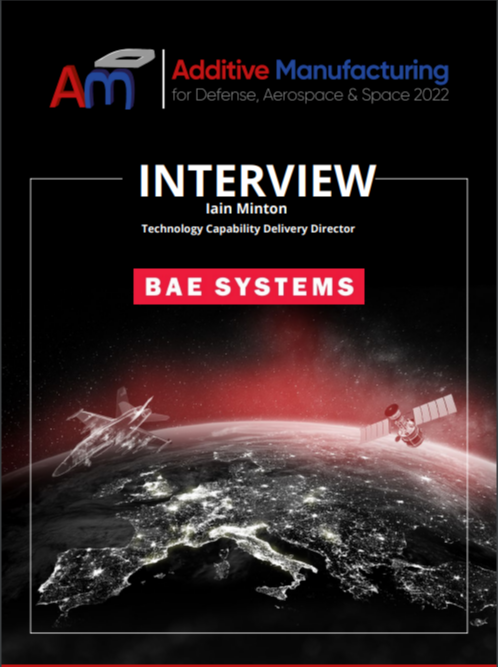BMW And Porsche's China Challenges: A Wider Industry Issue

Table of Contents
Intense Competition in the Chinese Luxury Car Market
The Chinese luxury car market is fiercely competitive, a far cry from the easier days of rapid expansion. BMW and Porsche face a two-pronged attack: established international rivals and rapidly growing domestic brands. Mercedes-Benz and Audi, long-time competitors, continue to fiercely contest market share, employing sophisticated marketing strategies and competitive pricing. However, the true disruptors are Chinese domestic brands like BYD, NIO, and XPeng.
- The Rise of EVs: The increasing popularity of electric vehicles (EVs) is fundamentally reshaping the luxury landscape. Domestic EV manufacturers are leveraging advanced technology and competitive pricing to attract consumers, posing a direct threat to traditional players reliant on internal combustion engine (ICE) vehicles.
- Aggressive Pricing Strategies: Competitors are deploying aggressive pricing strategies, including discounts and promotions, to gain market share. This pressure forces established brands like BMW and Porsche to adapt their pricing models or risk losing ground.
- Domestic Brand Success: The success of Chinese domestic brands is undeniable, showcasing their understanding of the local market and consumer preferences. Their ability to offer technologically advanced vehicles tailored to Chinese consumers' needs poses a significant challenge.
- Localization is Key: To thrive, international brands must focus on brand localization, adapting their products, marketing, and services to resonate with Chinese consumer preferences and cultural nuances. This extends beyond mere translation to a deeper understanding of local tastes and values.
Evolving Consumer Preferences and Demands
Chinese consumer preferences are evolving rapidly, demanding more than just a prestigious badge. Technology, sustainability, and personalized experiences are paramount. The demand for electric and hybrid vehicles is surging, driven by government incentives and growing environmental awareness. Beyond the powertrain, consumers prioritize autonomous driving features, connected car technologies, and seamless digital integration.
- Digital Marketing Dominance: Digital marketing and online sales channels are increasingly important for reaching younger, tech-savvy consumers. Traditional marketing methods are losing their effectiveness, necessitating a shift towards a more digital-first approach.
- Connecting with Younger Consumers: Adapting marketing and communication strategies to resonate with younger, digitally native Chinese consumers is crucial. This includes using social media platforms like WeChat and Weibo effectively and leveraging influencer marketing.
- The Power of Online Reviews: Online reviews and social media commentary heavily influence purchasing decisions. Maintaining a strong online reputation and proactively addressing negative feedback are critical for success.
- Technology as a Differentiator: Advanced technology and innovative features are no longer luxuries; they are necessities. Consumers expect cutting-edge technology and seamless connectivity in their luxury vehicles.
Navigating Regulatory Hurdles and Policy Changes
The Chinese regulatory landscape for automotive companies is complex and constantly evolving. Regulations concerning vehicle emissions, safety standards, data privacy, and cybersecurity are stringent and demanding. Navigating this intricate regulatory environment requires significant expertise and ongoing compliance efforts.
- Adapting to Change: The constant evolution of regulations presents a significant challenge. Companies must invest in staying informed about changes and adapting their operations accordingly.
- Government Policies and Tariffs: Government policies impacting import tariffs and investment incentives can significantly influence profitability and market access. Understanding and managing these factors are critical.
- Government Relations: Establishing strong relationships with relevant government agencies and regulatory bodies is essential for navigating the bureaucratic complexities.
- Legal Expertise: Robust legal and compliance expertise is crucial for ensuring that operations are compliant with all applicable regulations.
Supply Chain Disruptions and Global Uncertainty
Global supply chain disruptions, exacerbated by geopolitical factors, have significantly impacted the availability of parts and the production of vehicles in China. The automotive industry, reliant on a complex network of global suppliers, has been particularly vulnerable.
- Sourcing Challenges: Sourcing critical components, particularly semiconductors, has become increasingly challenging, leading to production delays and increased costs.
- Increased Production Costs: Supply chain constraints have driven up production costs, squeezing profit margins and impacting pricing strategies.
- Supply Chain Diversification: Diversifying supply chains to reduce reliance on single suppliers is crucial for mitigating future disruptions.
- Economic Uncertainty's Impact: Global economic uncertainty and fluctuating consumer confidence can negatively affect consumer spending, reducing demand for luxury vehicles.
The Broader Implications for the Global Automotive Industry
The challenges faced by BMW and Porsche in China highlight broader trends impacting the global automotive industry. Their experiences offer valuable lessons and best practices for other global automakers seeking to succeed in the rapidly changing Chinese market.
- Long-Term Strategic Planning: Long-term strategic planning and continuous adaptation are essential for navigating the dynamic Chinese market.
- Market-Specific Understanding: A deep understanding of the unique characteristics of the Chinese market, including its consumer preferences, regulatory environment, and competitive landscape, is paramount.
- R&D Investment: Investing heavily in research and development to meet evolving consumer demands for advanced technologies and sustainable vehicles is crucial for staying competitive.
- Local Partnerships: Collaborating with local partners to leverage their expertise, market knowledge, and established networks can significantly enhance success.
Conclusion: Overcoming BMW and Porsche's China Challenges – A Path Forward
BMW and Porsche's challenges in China underscore the need for global automakers to adapt to a rapidly evolving market characterized by intense competition, shifting consumer preferences, and regulatory complexity. Successfully navigating this landscape requires a multifaceted approach, including embracing digital marketing strategies, prioritizing technological innovation, understanding and adhering to regulations, and building robust supply chains. Analyzing BMW's China strategy and understanding Porsche's challenges in the Chinese market provides crucial insights for other players. To learn more about the strategies employed by successful companies and the intricacies of navigating the complexities of the Chinese automotive industry, explore further resources and in-depth case studies on market analysis and competitive strategies within the region.

Featured Posts
-
 Evaluating The Damage Trumps Trade Policies And The Future Of Us Finance
Apr 22, 2025
Evaluating The Damage Trumps Trade Policies And The Future Of Us Finance
Apr 22, 2025 -
 Chainalysis Acquires Alterya Blockchain Meets Ai
Apr 22, 2025
Chainalysis Acquires Alterya Blockchain Meets Ai
Apr 22, 2025 -
 Anchor Brewing Company To Shutter A Legacy Ends
Apr 22, 2025
Anchor Brewing Company To Shutter A Legacy Ends
Apr 22, 2025 -
 Ukraine Conflict Kyiv Under Pressure To Respond To Trump Plan
Apr 22, 2025
Ukraine Conflict Kyiv Under Pressure To Respond To Trump Plan
Apr 22, 2025 -
 Why Robots Struggle To Create Nike Shoes Technological Hurdles
Apr 22, 2025
Why Robots Struggle To Create Nike Shoes Technological Hurdles
Apr 22, 2025
